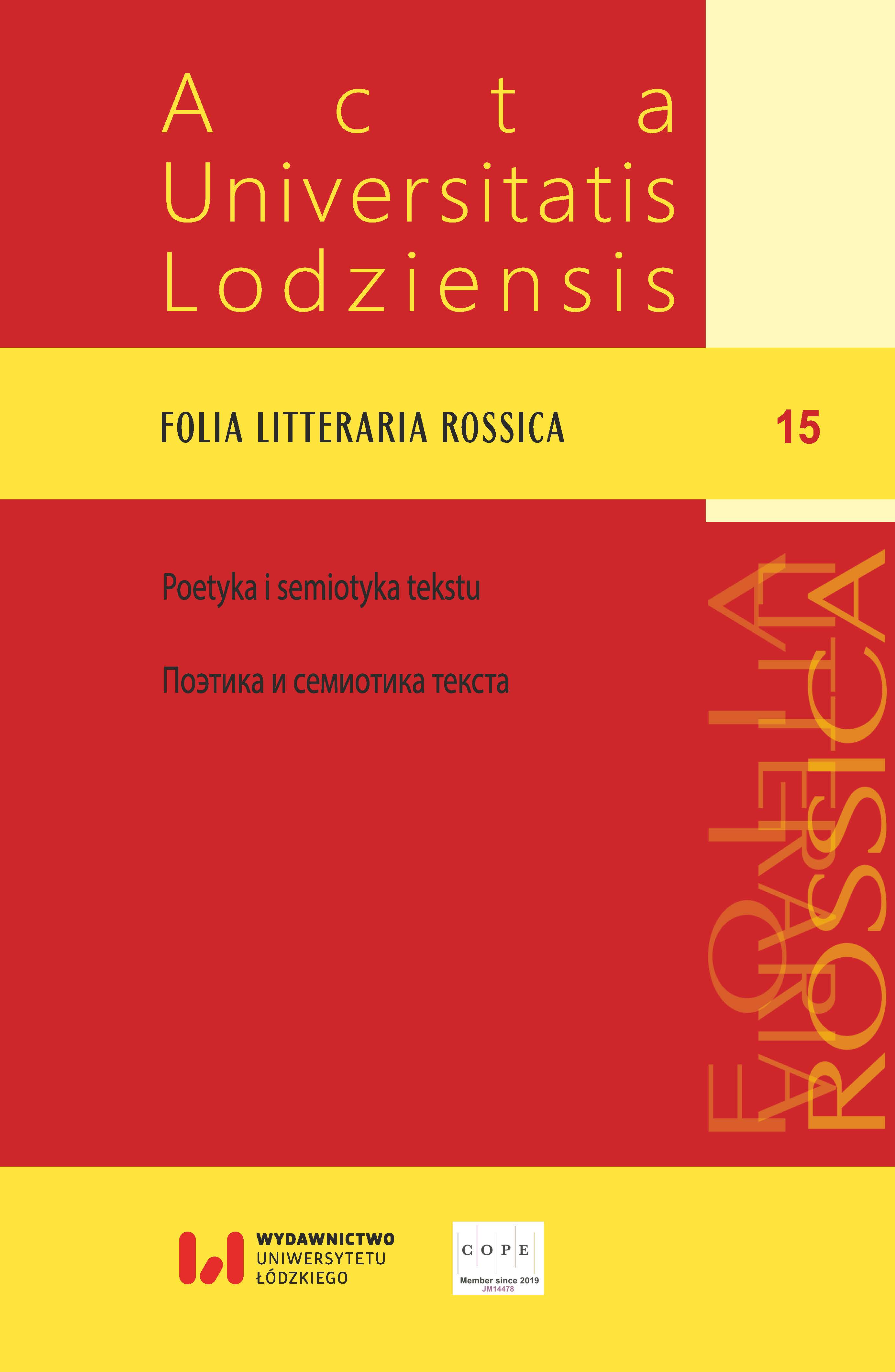An Idyll as a Fragment of Russian Germans’ World Picture
DOI:
https://doi.org/10.18778/1427-9681.15.20Keywords:
Russian Germans, genre, idyll, ethnic picture of the world, Herbert HenkeAbstract
The appeal of Russian Germans to the genre situation and signs of idyll is largely due to the desire to find rest and harmony in a serene artistic reality, to create a world image of peace and tranquility. The idyll of Herbert Henke has a certain tendency to converge with a landscape meditative elegy, but, not allowing the mood of disappointment and sadness in its tonality, it retains an idyllic constant – a serene tone – and many of its dominants: limited topos, idyllic motives, themes, situations (“Shore”, solitude, fishing), landscape elements, an observer from the side, statics, and visualisation of images. An analysis of the entire Russian-German idyllic corpus (46 texts) outlines the contours of a meta-idyll in the poetry of Russian Germans, features of which, in addition to those noted by Herbert Henke, generate the image of a person in the centre of the artistic world and the high frequency of motives of the motherland and home. The reason for this may be the comprehension in the lyrics of the tragic fate of Russian Germans, a total penetration into the lyrical fabric of drama. When entering an interaction with the ethnic picture of the world of Russian Germans, the idyll activates features such as serene tonalities, a motivational field with the semantics of peace and tranquility, limited topos, and the absence of social problems. They begin to correlate with ethnic elements such as the “awareness of one’s surroundings by someone else”, “being inside another”, a “genetic fear of exile”, “striving for autonomy”, the “priority of statics over dynamics”. The negative semantics of ethnic elements (“alien”, “fear”, “exile”, “dependence”) partly neutralises the positive fullness of the idyllic image, weakening the constant, namely the tone of serenity.
Downloads
References
Abramovskaya, Irina S. Khudozhestvennaya proza M. N. Muraveva. http://auditorium.novgorod.ru/fulltext/501/AIS_210103.doc
Google Scholar
Grabar-Passek, Mariya E. Bukolicheskaya poeziya ellinisticheskoi epokhi. In: Feokrit. Moskh. Bion. Idillii i epigrammy. Moskva: Izdatelstvo Akademii nauk SSSR, 1958: 189–229.
Google Scholar
Henke, Herbert. Der grüne Widerhall = Zelenoe ekho: Gedichte. Alma-Ata, 1977.
Google Scholar
Mirov, Nikolai S. Idilliia. In: Kratkaya literaturnaya entsiklopediya, ed. A. A. Surkov. Vol. 3. Moskva: Sovetskii pisatel, 1966: 58–59.
Google Scholar
Senchina, Lyudmila T. Zhanrovaya evolyutsiya idillii (na materiale russkoi poezii XVIII – pervoi poloviny XIX veka). Avtoreferat dissertatsii na soiskanie uchenoi stepeni kandidata filologicheskikh nauk. Tbilisi, 1990.
Google Scholar
Shaitanov, Igor O. Antichnaya lirika. http://lit.1september.ru/articlef.php?ID=200203907
Google Scholar
Vatsuro, Vadim E. Russkaya idilliia v epokhu romantizma. In: Russkii romantizm, ed. K. N. Grigorian. Lenigrad: Nauka, 1978: 118–138.
Google Scholar
Veber, Valdemar. Cherepki. Moskva: R. Elinina, 2000.
Google Scholar
Wetterleuchten. Almanach sowjetdeutscher Prosa und Lyrik. Moskva: Progress, 1982: 156–157.
Google Scholar
Zeifert, Elena I. Chelovek v zhanrovom soznanii Georga Traklia. In: Khudozhestvennaya literatura i problemy antropologii: materialy respublikanskoi nauchno-teoreticheskoi konferentsii (30–31 oktiabria). Karaganda: Izdatelstvo KarGU im. E. A. Buketova, 2002: 181–191.
Google Scholar
Downloads
Published
How to Cite
Issue
Section
License

This work is licensed under a Creative Commons Attribution-NonCommercial-NoDerivatives 4.0 International License.












